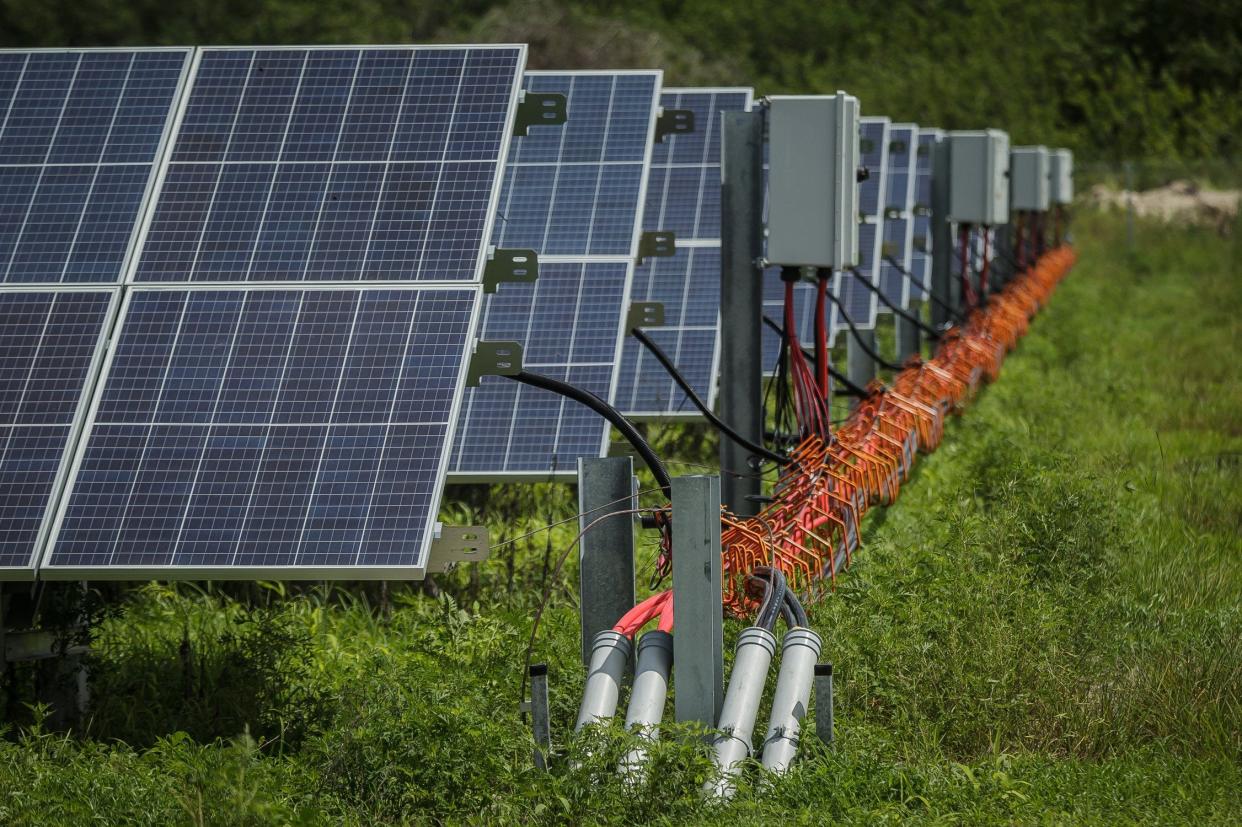Net metering: Don't tax all electric customers to support rich solar panel owners

Newspapers around the state are weighing in on legislation that would change what is known as net metering, which reimburses people who put solar panels on their homes and businesses for the excess power they generate.
Look closely and you will see an almost impossible-to-believe position emerging – that all electric customers in our great state should pay higher bills to subsidize the affluent minority who own solar panels. You heard that right: Newspapers are taking the position that all of us should pay more so that those who are able to afford solar panels pay less.
Think about not only what that means for homeowners and apartment-dwellers. What about small business owners who have struggled to survive during the pandemic, who are dealing with unprecedented hiring challenges, and who are fighting an inflation surge the nation hasn’t seen in decades? Apparently, small businesses have to accept rising power bills as well to preserve a regressive subsidy that was created more than a decade ago to promote solar energy that at the time was much more expensive.
More: FPL's spin on solar panels misleading
And: Bill seeking to curb rooftop solar incentive moves forward with bipartisan support
As president of the Florida State Hispanic Chamber of Commerce, I and my organization support and protect the interests of more than 600,000 Hispanic-owned small businesses, fully a quarter of all small business owners in Florida. This subsidy (which effectively taxes all citizens to support the affluent) harms small businesses, the people they employ and the customers they serve.
As more homeowners invest in solar power, the impact will quickly grow for the vast majority who do not have that option. It is well past time to change net metering laws to address this growing problem.
As background, net metering allows those who can afford solar to sell excess power to their utility – at the same retail rate the utility charges for electricity. While that brings down the cost of their investment, it relieves them of the burden of paying their fair share of the cost for utility infrastructure, which means higher costs for the rest of us.
Imagine if this same system existed in another industry, like citrus. A homeowner with plenty of land plants grapefruit trees. They bring any fruit they don’t eat to their grocer, who must purchase it at the same retail price it charges customers, much higher than the wholesale price it pays farmers. But retail prices reflect overhead and infrastructure. Who covers the grocer’s cost for staffing, rent, utilities, transportation? Easy: every other customer in the form of higher grapefruit prices.

This could not have been the intent when our government passed net metering laws years ago. They meant to spur an emerging industry with a high cost-of-entry. According to the Solar Energy Industries Association, the cost for residential solar systems has fallen more than 60% over the last decade. So why is this massive subsidy still required? Why must those who can’t afford solar panels continue to offset the costs of those who can? Why must small business owners struggling in a pandemic-challenged economy be saddled with higher costs?
We all want more solar power. We all want a cleaner energy future for our children. And Florida has made great strides in recent years as homeowners invest in solar panels and as utilities build large-scale solar farms. But the time has come for fair, common sense changes to net metering rules that protect the vast majority of Florida’s residents and small businesses.
Julio Fuentes is president and CEO of the Florida State Hispanic Chamber of Commerce.
This article originally appeared on Palm Beach Post: Net metering: Don't tax all customers to support rich solar panel owners

